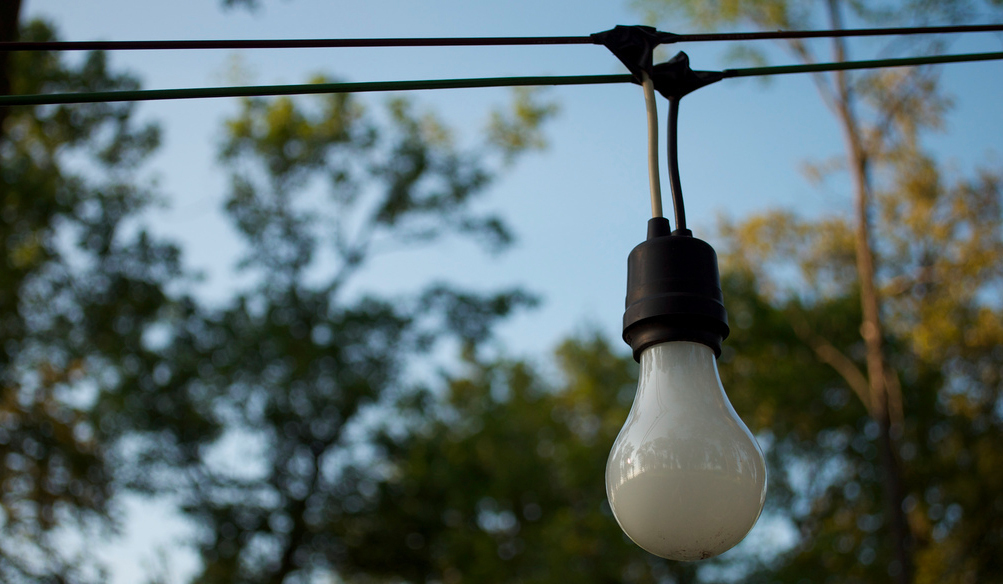Dimmer Switch On Enforcement Unlikely To Darken Lightbulb Efficiency Standards
Congress is all set to pass a $1.1 trillion budget this week. The massive spending bill, which has already cleared the House and is likely to pass in the Senate, affects every federal agency there is. Yet in the midst of a trillion-dollar omnibus law that reaches into every aspect of our government, there is controversy. And over what enormous issue might such controversy exist, you might ask?
Light bulbs.
As the Washington Post reports, House Republicans added a rider to the budget bill that prohibits the Department of Energy from spending any money to enforce a 2007 law relating to lightbulb efficiency. Without that funding, the DOE is effectively banned from enforcing the rules.
The rule in question takes old-fashioned incandescent light bulbs out of circulation in the country, by slowly phasing them out over time. In their place, manufacturers and distributors can sell LED, CFL, or higher-efficiency halogen-filled incandescent bulbs.
The phasing-out process allows companies and retailers to continue to sell any existing stock of the older bulbs, but prohibits the manufacture or import of new ones. 100-watt bulbs went in 2012, 75-watt bulbs went last year, and 60- and 40-watt bulbs had their turn start this month.
The rider on the budget bill doesn’t actually change the law at all. Nor does it technically prohibit enforcement. Through defunding, it simply seeks to make enforcement more or less impossible in practical terms.
We went through a version of this fight back in 2011 as well. That time around, a government funding bill forced a nine-month delay on the implementation of the law.
So will some retailer or importer use the impending lack of oversight to skirt the law? Undoubtedly. Someone, somewhere, always does–even when a law is actually well-enforced.
But in general, the move to bar funding for enforcement is more likely to be empty political grandstanding than something that has a noticeable effect on consumers. Manufacturers based in the US have already converted their factories and product lines over to newer bulbs and newer standards. No sane producer is suddenly going to shift their production lines back down to older standards just because they think the DOE isn’t looking for a year.
As George Slover, policy counsel for Consumers Union, said, “The marketplace is ahead of the opponents of energy efficient bulbs. Consumers are choosing them, manufacturers are committed to them, and we think this action is unlikely to change that.”
Republicans are still trying to save traditional lightbulbs. It likely won’t work. [Washington Post]
Want more consumer news? Visit our parent organization, Consumer Reports, for the latest on scams, recalls, and other consumer issues.


